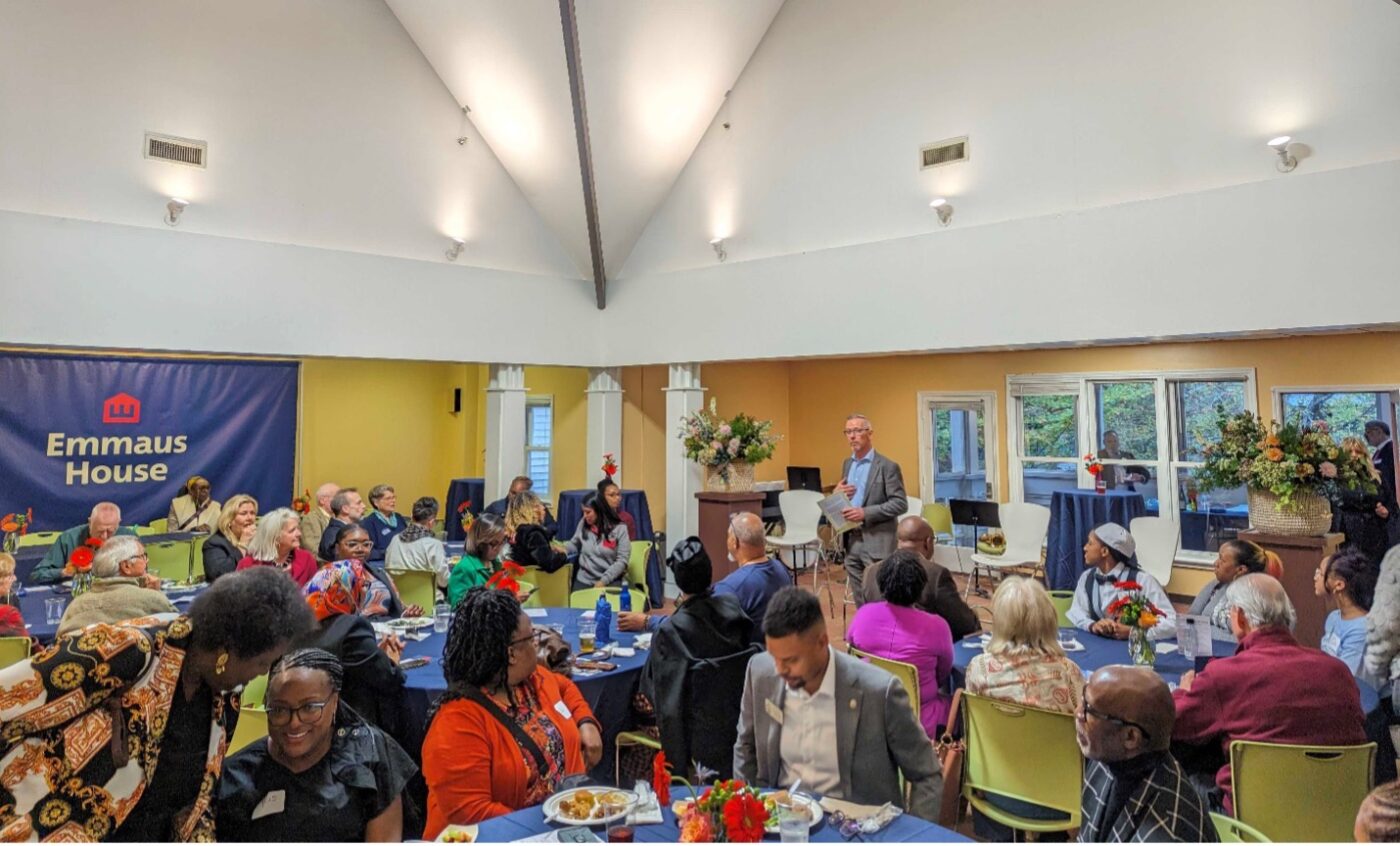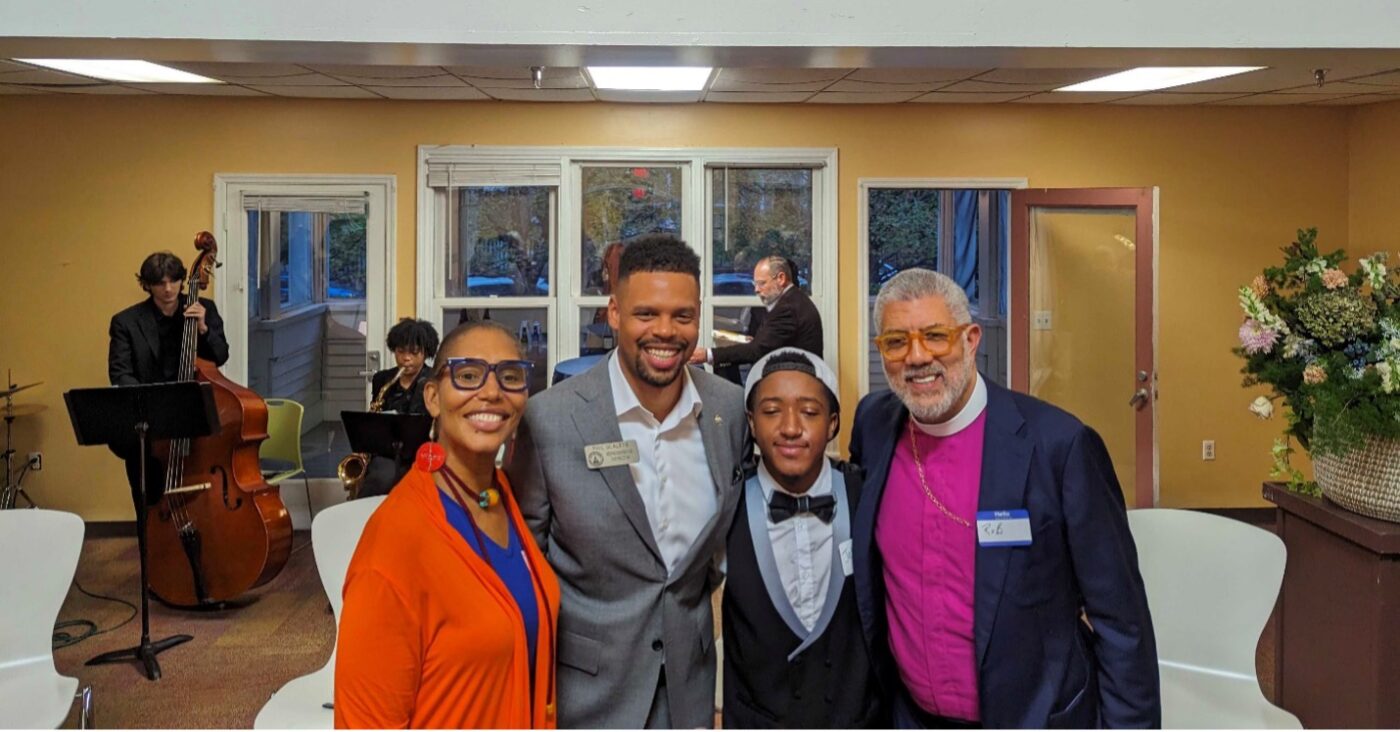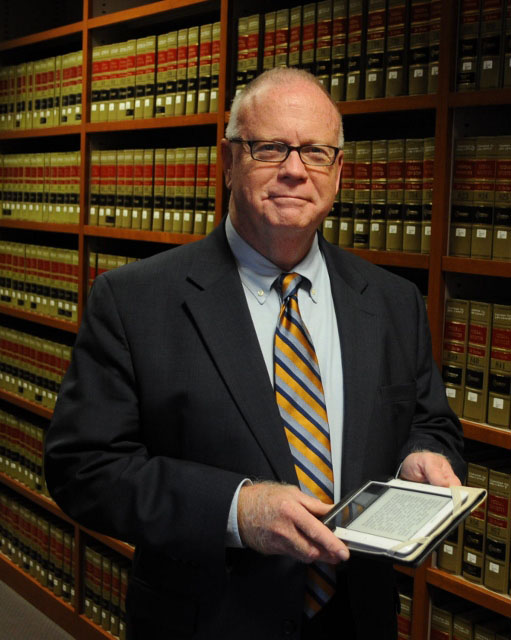
Emmaus House fundraiser – contributed photo.
After more than 55 years of serving the Peoplestown neighborhood in Atlanta, Emmaus House continues to build on the legacy of its founder.
In an interview with Connecting News following Emmaus House’s annual fundraiser Executive Director Greg Cole said the event netted about $20,000 “We had a successful evening, with about 75 people attending.”
The highlight of the October 15 event styled as Building on Our Legacy was a panel discussion by Diocese of Atlanta Bishop Rob Wright, Dr. Beth-Sarah Wright (on the Power of Literacy), State Rep Phil Olaleye of HD 59, which includes Peoplestown (on the Power of Community), and Jelin Moss, a high school student who was a Junior Servant Leader at the Emmaus House Children’s Defense Fund Freedom Schools program this summer (on Learning to Lead).
“It was good to be in our own space rather than in a rental event facility,” Cole said. “People enjoyed coming to Peoplestown and seeing the neighborhood whose people their donations support.”

(L-R) Dr. Beth-Sarah Wright, State Rep Phil Olaleye, Jelin Moss, and Bishop Rob Wright – contributed photo.
Emmaus House began in 1967 when Episcopal priest Austin Ford moved into a run-down, two-story house in the poverty stricken Peoplestown neighborhood.
Ford, a white man in his late 30s rode his bicycle through the predominantly Black community and knocked on doors to talk to residents about ways they could work together to improve the area. Over time the patrician, but affable Ford became accepted in the neighborhood. Ford’s example of being part of the community he served continues at Emmaus House, one of the oldest continuous ministries of the Episcopal Diocese of Atlanta.
Today, Emmaus House focuses on building economic empowerment and multigenerational education.
The Emmaus House Muriel Lokey Help Center provides a ladder to economic opportunity by stabilizing individuals in crisis and supporting opportunities for increased household income. The Emmaus House Food Pantry is a client choice food pantry that is open to residents of the 30315 zip code every Tuesday and Thursday by appointment. The Supports for Success Program promotes economic success through intensive case management using an evidence-based model to assess and measure progress toward economic self-sufficiency.

Emmaus House photo
Emmaus House supports academic achievement and youth development by engaging children, youth, and parents through multigeneration academic and personal support, culturally relevant programming, leadership development, and community organizing. The CDF Freedom Schools® Program aims to shape children’s futures by developing strong, literate, and empowered children through six weeks of summer reading enrichment. Youth on the Move, an out-of-school time program, prepares middle and high school students for success as adults through enrichment, education, empowering experiences, and peer support.
To support the work of Emmaus House, go to Donate — Emmaus House (emmaushouseatlanta.org)

